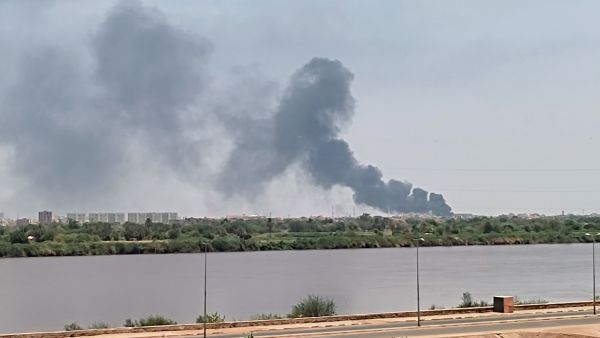ALBAWABA - According to Sudanese activists, the residents of Khartoum awoke to heavy shelling and rocket fire, just hours after a fatal airstrike killed at least 20 civilians in the Sudanese capital.
In a statement by the neighborhood's resistance committee: "The death toll from the aerial bombardment" in southern Khartoum "has risen to 20 civilian fatalities,". They said that two children were among the victims and warned that additional deaths were unreported because "their bodies could not be moved to the hospital because they were severely burned or torn to pieces in the bombing".
The Armed Conflict Location & Event Data Project reported that since the war began between the Sudanese Armed Forces and the paramilitary Rapid Support Forces (RSF) on April 15, around 5,000 people have been killed, with at least 800 children among the casualties.
The Sudanese Armed Forces control are known to control the airspace across Sudan where they carry out air strikes almost daily, while RSF fighters rule the capital's streets.
Western governments have accused RSF and associated militias of ethnic cleansing in the western Darfur area, and the International Criminal Court has launched a new investigation into possible war crimes.
The Sudanese armed forces are also been accused of abuses, including a July 8 air strike that killed around two dozen civilians.
According to the United Nations, more than half of Sudan's 48 million people now require humanitarian aid and protection, and six million are "one step away from famine". The war has domestically displaced approximately 3.8 million people, with another million crossing borders into neighboring countries.
According to the International Organization for Migration, almost 2.8 million people have been displaced from Khartoum. That is more than half of the capital's pre-war population of approximately five million people.
Situation in Khartoum
The Neighborhood's Resistance Committee is one of many volunteer groups that used to organize pro-democracy marches but now help families caught in the crossfire between the army and paramilitary forces.
In Khartoum, resistance committees have been among the few sources of relief, retrieving survivors from the rubble of bombed-out houses, delivering medication through gunfire on the streets, and documenting atrocities committed by both sides.







